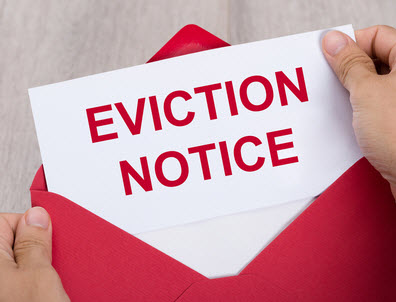If I Fight an Eviction in Alabama, Can I Win?
Most states or municipalities have pretty strong rules protecting tenant rights. For instance, in San Francisco, the rental deposit is never really the landlord’s—it’s the tenants even when the landlord has possession of it. When the tenant gets that deposit back, they are also entitled to any interest that accrued on it. Most tenants, of course, do not know this, but it is in the city code nonetheless. In Vermont, tenants who do not pay their rent or seriously violate the lease have 14 days to remedy their actions or pay their rent before the eviction process can start. In Massachusetts, a landlord can be fined up to $300 for trying to speed up the eviction process. While Alabama is not overly tenant-friendly, it does offer a few stipulations that protect tenants from a wrongful eviction.
If you feel that you were wrongly evicted in Birmingham or Mobile, you are not without options. Even if have heard horror stories about people who have been forced out of their apartments or rental properties, know that those people were probably not aware of their tenant rights. So that this does not happen to you, know that there are a few reasons a judge may deny an eviction in Alabama, which can be found under ALA Code § 35-9A-101.
Self-Help Eviction
If your landlord uses self-help measures to evict you—meaning, they change the locks, cut off the running water, interrupt electricity, or interrupt any other essential utilities that a tenant may need to live comfortably—the judge may deny the landlord’s request to evict a tenant. The judge may also deny the landlord’s request if the landlord tried to evict you without providing any prior notice or complaint to the tenant, as doing so does not give the tenant a chance to remedy the problem.
Retaliation
If you reported your landlord for a health code violation, placed their rent in escrow because they failed to make a repair, or exercised your rights in any way, and if afterward your landlord filed an eviction notice, their actions could be construed as retaliation. According to ALA Code § 35-9A-501, trying to evict a tenant for simply exercising their legal rights is in and of itself illegal, and the judge will likely deny their request.
Eviction Based on Erroneous Rules
A landlord is free to add rules to his or her lease as he pleases, but he can only enforce them if the tenant knows about and agrees to them—in writing. A landlord cannot evict a tenant for having a dog if there is no clause in the lease agreement that states that a tenant cannot have a dog. This is the case even if he tells the tenant that dogs are not allowed but does not get the tenant’s consent to the rule in writing. Each rule that a landlord tries to enforce must be explicitly stated in the lease agreement.
Learn More About Your Tenant Rights From a Birmingham Eviction Attorney
Whether you have already received a wrongful eviction notice, believe that your landlord wants to evict you, or just want to know your rights, one of our Birmingham eviction lawyers would be more than happy to fill you in on your rights. If you are a landlord and want to know what constitutes a legal conviction and what makes a wrongful one, or if you want us to draft a lease that complies with Alabama law, we will be just as happy to help. Contact the law offices of Cloud Willis & Ellis, LLC today for a free consultation.


